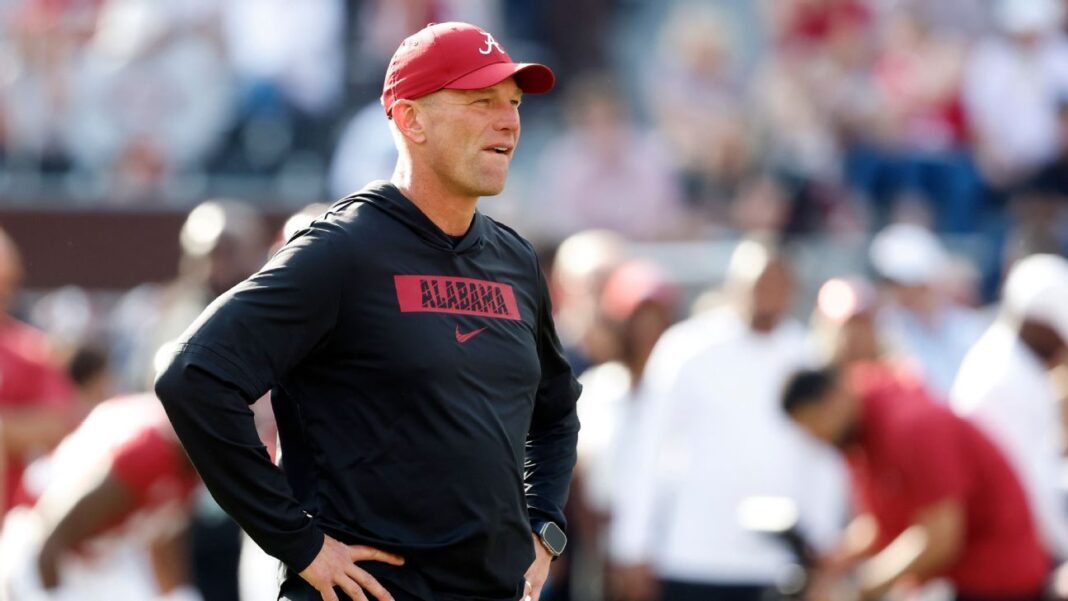The Playoff Picture: As the Regular Season Winds Down
With only two weeks remaining in the college football regular season, the playoff picture is beginning to solidify. The current landscape reveals that the top six teams are looking like strong contenders, seemingly locked in for a spot. Meanwhile, the ACC and Group of 5 are poised to contribute champions as we approach the postseason, challenging the Big Ten’s dominance in the playoff narrative.
Key Matchups Looming Ahead
One of the standout matchups coming up in Week 13 is between the USC Trojans and the Oregon Ducks. This clash is pivotal; the victor is likely to earn a coveted playoff bid. Additionally, the Notre Dame Fighting Irish, currently ranked No. 9, seems almost assured of a playoff spot as they face comparatively weaker opponents like Syracuse and Stanford. With ten out of twelve playoff spots seemingly wrapped up, the suspense around the remaining two bids intensifies.
The Lurking Contenders
Yet, not all teams with playoff aspirations are out of the mix. Alabama, Oklahoma, Utah, Vanderbilt, BYU, and Miami remain hopeful. Each team is anxiously watching the committee’s decisions, hoping for validations of their strengths over inconsistencies in performance. The significant question remains: Will the selection committee take a deeper look at their evolving résumés?
The Selection Committee’s Process
As the season draws to a close, the committee continues to tweak the rankings weekly, often eliciting frustration from fans and players alike. With a mix of nerves, anger, and confusion permeating the atmosphere, many observers are left scratching their heads at Alabama’s recent drop in rank. After a narrow two-point loss where they outperformed their opponents in many statistical categories, the Tide found themselves at No. 10, which many feel does not adequately convey their on-field prowess.
Alabama’s resume includes victories over a formidable Georgia team as well as wins against ranked opponents like Vanderbilt, Tennessee, and Missouri. Despite these accomplishments, the Tide, traditionally a powerhouse, has faced scrutiny after just one loss.
The Argument for Alabama
There’s an inherent irony in the committee’s decision-making process this year. Many advocate that teams should be evaluated with context, particularly when assessing losses against their wider body of work. Alabama’s ranking behind teams like Notre Dame and Oregon, which boast fewer wins against ranked opponents, raises eyebrows. Critics argue that this reflects a failure to apply the nuanced evaluation the committee was designed to uphold.
The Case of the Group of 5
Meanwhile, the Group of 5 teams are navigating their path towards securing a playoff spot. The most recent favorites like Memphis and South Florida faltered after the committee placed them in a favorable position, only for them to lose crucial games. This led to a seismic shift toward Tulane, who successfully managed a Power 4 win and boasts a track record against formidable competition, albeit with a schedule riddled with challenges.
James Madison adds another layer of complexity; their consistent dominance within their league, even without a significant resume of top-tier wins, pushes the narrative that strength of schedule is not the sole metric for success.
A Deeper Dive Into Rankings
Let’s briefly examine two teams’ performance based on win-loss records. Team A, possessing victories against stronger opponents, including ranked teams, lost by narrow margins to higher-ranked teams. In contrast, Team B shows wins against less formidable opponents with similar losses. Analyzing through this lens, Team A (representing Michigan, for example) clearly appears to be more deserving of a higher ranking compared to Team B (in this case, Utah), which is ranked significantly higher.
The Frustration of the Rankings
The current frustrations of playoff contenders may not solely stem from game results but from perceived biases in selection. Observers speculate that the process has simplified to a copy-and-paste system reminiscent of traditional polls, losing the intricate analysis that was promised at the inception of the playoff selection committee.
The debate continues, particularly for teams like Michigan and Alabama, who, despite deserving recognition based on their performances, find themselves obstructed by the whims of ranking adjustments.
Navigating Uneven Fields
As the rankings frequently shuffle positions, teams like Georgia Tech and others are left to grapple with why their consistent outputs are overlooked. The spotlight often shines brighter on programs with established legacies, even when their current seasons do not reflect their historical prestige. The continuing patterns indicate that some teams may need to dominate their competition significantly to break through the pre-existing narratives.
This intricate tapestry of rankings, record comparisons, and committee biases underscores the ongoing discussions within the college football community. For athletes, coaches, and fans alike, the ultimate question remains: will the selection committee embrace a holistic view or continue to rely on surface-level analysis? The final weeks will undoubtedly reveal the answers as teams jostle for playoff positioning in a world where every game counts and every decision carries weight.



